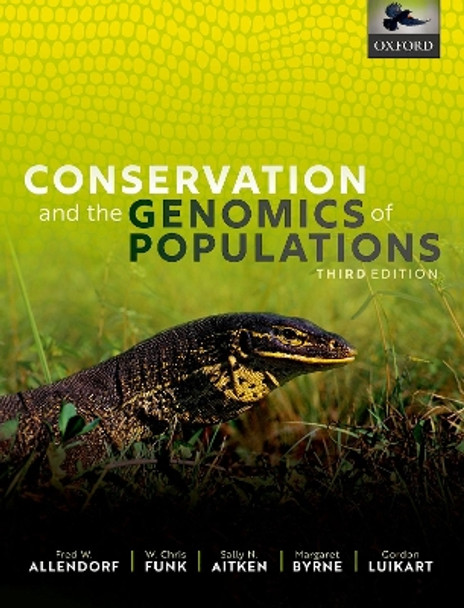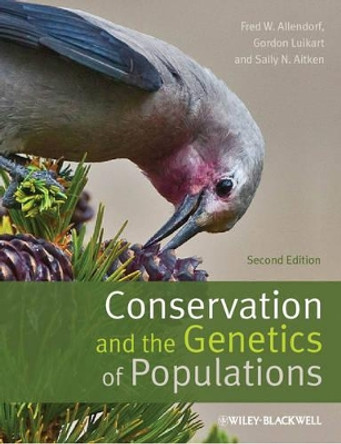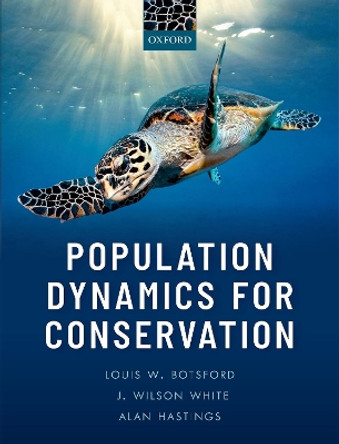Description
About the Author
Fred W. Allendorf is a Regents Professor Emeritus at the University of Montana, USA. He was awarded the Molecular Ecology Prize in 2015, and he was elected to the American Academy of Arts and Science in 2019. He is a past President of the American Genetic Association, and former Director of the Population Biology Program of the US National Science Foundation. He has taught conservation genetics throughout the world, including the University of Western Australia, the Victoria University of Wellington, the University of Costa Rica, the Organization for Tropical Studies in Costa Rica, and the National Zoological Garden of South Africa. W. Chris Funk is a Professor in the Department of Biology and Director of the Global Biodiversity Center at Colorado State University, USA. He has published over 100 articles on the conservation genomics and evolutionary ecology of amphibians, fish, birds, mammals, and stream insects in North and South America. He is a Leopold Leadership Fellow and was a Fulbright Scholar at the Universidad del Los Andes, Bogota, Colombia. He is actively involved in improving the incorporation of genetics into international conservation policy as a member of the IUCN Conservation Genetics Specialist Group, GEO BON Genetic Composition Working Group, and SCB Conservation Genetics Working Group. Sally N. Aitken is a Professor in the Department of Forest and Conservation Sciences in the Faculty of Forestry at the University of British Columbia, Canada. She leads the Centre for Forest Conservation Genetics. Her research integrates genomic, phenotypic, and climatic data to understand the processes driving local adaptation to climate, and how management can facilitate the adaptation of populations to new climates and other threats. She received the Canadian Forestry Scientific Achievement Award in 2009, the International Union of Forest Research Organization's Scientific Achievement Award in 2014, and was elected a Fellow of the Royal Society of Canada in 2017. Margaret Byrne is Executive Director of Biodiversity and Conservation Science in the Western Australian Department of Biodiversity, Conservation and Attractions, and is an Adjunct Professor at the University of Western Australia and Curtin University in Western Australia. She serves on the Australian Academy of Sciences National Committee for Ecology, Evolution and Conservation, and the Management Committee for the Genetics Society of Australasia. She undertakes conservation genetics research to inform biodiversity conservation strategies for rare and threatened species and for management of landscapes, including climate adaptation. She leads a strong science group providing an evidence-based approach to conservation management and policy in Western Australia. Gordon Luikart is a Professor at the University of Montana, USA. He has published numerous articles on the conservation and genetics of fish, mammals, and insects. He was a Fulbright Scholar at Latrobe University in Melbourne Australia, and won a Bronze medal as top scientist in France's CNRS. He was named one of the "Most Influential Scientific Minds" in 2014 by Thomson Reuters for publishing highly-cited papers. He taught conservation genetics in Portugal, South Africa, and globally on-line. He actively works to incorporate genetics into conservation as a member of the IUCN Conservation Genetics Specialist Group, and GEO BON Genetic Working Groups.
Reviews
This textbook is foremost a great reference for upper level undergraduate or graduate courses, as well as a good go-to reference for conservation genetic professionals. As a teaching resource, the plentiful boxes and guest boxes that present recent literature and contextual examples provide great platforms for student discussion and improved comprehension. * S.J. Galla et al., Conservation Genetics *
The book nicely complements the theory with real-world examples and provides important background reading, which I would recommend to each student starting a conservation genomics project. Informed conservationists will also benefit from the overview on what is possible with today's technologies. The authors did an excellent job in summarizing the recent developments and included the most recent discussion in the literature. * G. Segelbacher, Evolutionary Applications *
This book provides a solid background on theory and concepts and demonstrates how they underpin the interpretation of genomic data. This is a strength that will see this book stay as one of the few key textbooks in conservation genetics in the future. It is straight to the point and ideal for those coming to grips with the world of conservation genomics. * L.E. Neaves, Biodiversity and Conservation *
This book provides conservation biologists with an ideal way to get acquainted with evolutionary genetics and the use of genomics in conservation science. It will help readers gain insightful understanding of the theory of population genetics that underpins conservation genetics. The study of conservation genetics and genomics is assisted by a comprehensive glossary, which even sheds light on such unusual terms as gnomics! If you are using or planning to use a genomic approach in conservation, go for this edition; it will be invaluable. * G. Sramko, Conservation Biology *
Book Information
ISBN 9780198856566
Author Fred W. Allendorf
Format Hardback
Page Count 672
Imprint Oxford University Press
Publisher Oxford University Press
Weight(grams) 1804g
Dimensions(mm) 253mm * 194mm * 42mm







